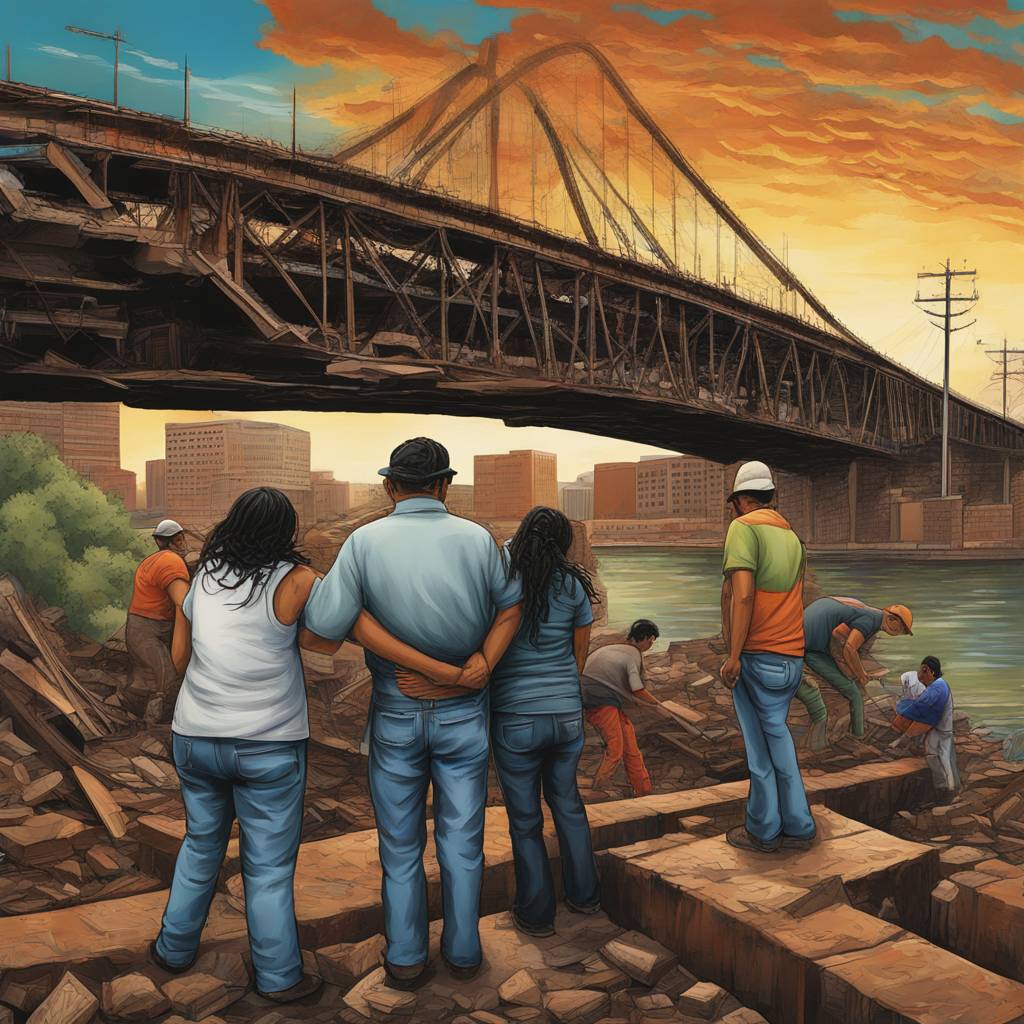The construction workers who went missing in the Baltimore bridge collapse were from Mexico or Central America, including Honduran father and husband Maynor Yassir Suazo Sandoval, who had been in the U.S. for 18 years. Maynor had dreams of starting his own business and retiring peacefully in Honduras. He was the youngest of eight siblings and had worked in industrial technician in Honduras before coming to the U.S. He settled in Maryland and started a package delivery business, supporting his family and enabling other family members to join him in the U.S. Maynor had a wife and two children and was in the process of getting legal residency before the tragic collapse.
Maynor was working for Brawner Builders, the company performing maintenance on the bridge when it collapsed. Despite the dangers of working at heights on bridges, he was never scared and always emphasized the importance of hard work. Maynor had been financially supporting various organizations in his hometown in Honduras and was planning to return there to complete his residency process. His family was devastated by the news of his disappearance, and they expressed faith that he could still be found alive. The tragedy highlighted the contributions that migrants make to the U.S. economy, with Mexican President Andrés Manuel López Obrador emphasizing the risky jobs that migrants are willing to take on.
In the aftermath of the collapse, authorities located the bodies of two men, including Guatemalan Dorlian Ronial Castillo Cabrera and Mexican Alejandro Hernández Fuentes. The governments of Mexico, Guatemala, El Salvador, and Honduras confirmed that their citizens were among the missing workers. The incident was thought to be an accident, as federal and state investigators continued their examination of the collapse. The families of the missing workers faced uncertainty and anguish as they awaited news of their loved ones. The tragedy was a stark reminder of the dangers that construction workers face every day and the sacrifices that migrants make to provide for their families.
In the small town of Azacualpa in Honduras, Maynor’s family mourned his disappearance, with his mother devastated by the news. Maynor had been a key figure in helping family members migrate to the U.S., and his loss was deeply felt by his loved ones. Despite the challenges he faced, Maynor had remained positive and forward-thinking, always dreaming of a better future for himself and his family. As the search for the missing workers continued, communities in Mexico, Guatemala, El Salvador, and Honduras rallied around the families of the victims, offering support and solidarity in their time of need. The tragedy also sparked a debate on the treatment of migrants and the risks they are willing to take for better opportunities.
The situation highlighted the importance of workplace safety and the need for better protections for workers in hazardous industries like construction. The collapse of the bridge served as a sobering reminder of the dangers that workers face in their daily jobs and the need for improved safety measures to prevent such incidents in the future. The families of the missing workers grappled with grief and uncertainty, hoping for a miracle while preparing for the worst. The international community expressed solidarity with the affected families and called for a thorough investigation into the cause of the collapse to prevent similar tragedies from occurring. The story of Maynor and the other missing workers shed light on the sacrifices that migrants make and the challenges they face in pursuit of a better life for themselves and their families.








